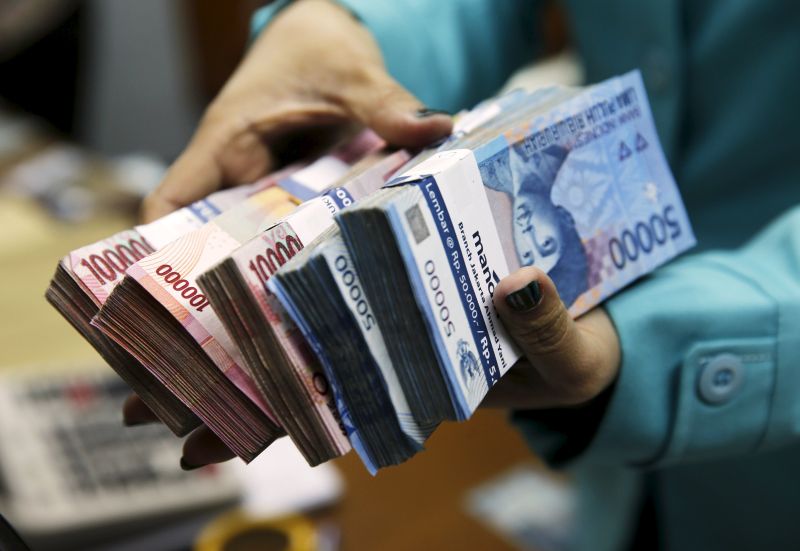JAKARTA, May 18 — If the rupiah’s slide is any indication, Bank Indonesia will need to make good its pledge for stronger measures after its first interest-rate hike since 2014 failed to stymie the market selldown.
The rupiah fell 0.6 per cent to 14,138 against the US dollar, its weakest since October 2015, today after Bank Indonesia’s policy decision. The Jakarta Stock Exchange Composite Index erased initial gains, while the benchmark 10-year bond is headed for a fifth weekly loss.
“This interest rate increase is probably enough to slow the outflow but it’s certainly not enough to reverse the selling pressure,” said John Teja, director at PT Ciptadana Sekuritas. “The central bank and the government really have to restore confidence in the rupiah and the economy,” he said, predicting a 25-basis point hike in the rate in the second half.
Global funds have dumped a net US$2.3 billion (RM9.1 billion) of sovereign bonds since the end of March, set for the biggest quarterly withdrawal based on data compiled from 2009, and pulled US$1.2 billion from shares amid a rout in emerging markets. Outgoing Governor Agus Martowardojo said that the central bank is ready to add to yesterday’s 25-basis point rate increase again to ensure stability.
The rupiah has declined 4 per cent this year even as the central bank burnt through more than US$7 billion of reserves since the beginning of February to halt a slump spurred by rising Treasury yields. The benchmark bond yield is trading near its highest in 14 months, while the stock index has slumped almost 9 per cent in 2018.
Should Bank Indonesia carry through with its promise to do more, the bond markets may then stabilise, said Vivek Rajpal, a strategist at Nomura Holdings in Singapore. “That said, not all is clear on the external front. US longer end is still rising and making newer highs which is weighing on markets.”
The Federal Reserve is poised to add to its six rate increases since December 2015 as soon as next month, and concerns of a faster tightening pace have propelled the 10-year Treasury yield to more than 3 per cent. Bank Indonesia said it anticipates the US authority to hike three times in 2019, on top of expectations for a total of four increases this year.
Bank Indonesia’s hike “reflects the need for the central bank to strike a balance between the reality in the financial markets and the needs from businesses and consumers,” said Agus Yanuar, president director and chief investment officer at PT Samuel Aset Manajemen. “We are expecting more interest rate increase this year, at least by another 25 basis points.”
Foreigners own about 38 per cent of the sovereign bonds in Indonesia, among the highest of Asian emerging markets, making it susceptible to capital outflows. To preserve the yield appeal, the central bank may be persuaded to tighten again in two to three months, according to PT Sinarmas Sekuritas.
The yield on the benchmark government bond has risen 65 basis points this quarter to 7.324 per cent, set for the biggest quarterly increase since December 2016. It reached a 14-month high of 7.39 per cent on May 9.
“I don’t think our market can decouple from external forces,” Jeffrosenberg Tan, head of investment strategy at PT Sinarmas Sekuritas, said by phone. “This rate increase will not stop foreign investor outflows from our sovereign bond market. It may provide some relief and temporarily restore some confidence.” — Bloomberg






















